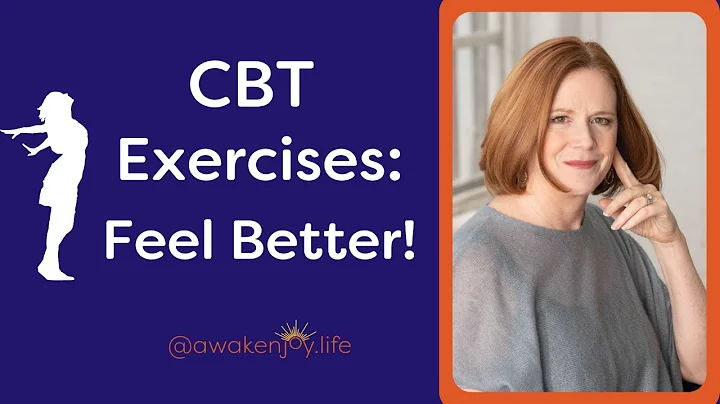Below are 11 unreasonable beliefs summarized by the famous cognitive behavioral psychologist Ellis. People with depression and anxiety can compare with their own cognitions and concepts to help rationalize their cognitions. This can be done when doing self-treatment. refer to.

Unreasonable belief one:
A person should be liked and praised by people around him, especially those who are important to him.
Discussion and Analysis:
This is a subjective good intention, but it is impossible to establish in real life. For example, it is impossible to completely achieve this in the relationship between school, workplace, and even family members, between husband and wife, and between parents and children. In fact, this is a goal that is completely beyond reality and cannot be completely achieved by anyone.
In addition, you may not know whether others like you or have praised you, and it may not necessarily be done in front of you.
Everyone has an independent personality, characteristics, and subjective feelings and emotions. These can come from outside or from within. How others choose, whether they like and praise you, is their right. In fact, for you, this cannot be decided. Even if you try to please or please, you may not be praised and liked by others.
Reasonable cognition and belief:
People are different. It is possible or normal for a person to be denied or rejected by other people. Others like you but may not say it publicly. As long as you know, there are a few People, even if a person likes you, you can be sure that you are popular.
Unreasonable belief two:
A person must have strong abilities and achievements in all aspects to be valuable.
discussion and analysis:
This is a goal that is divorced from reality. As the saying goes, no gold is pure and no one is perfect. No one is perfect!
A person may have advantages over others in some aspects, but at the same time he may not be as good as others in other aspects. This is normal. A person may have many successes and may also experience many failures. This is because everything in the world is impermanent. , there is no guarantee that something will succeed and something will not fail!
As the saying goes, it’s up to people to make things happen, and it’s up to God to make things happen. This is also a reasonable idea; in other words, work hard to do what you should do, but don’t be too obsessed with the results. The process of hard work is also valuable.
Reasonable cognition and belief:
Everyone is a different individual, everyone has advantages and disadvantages, everyone will have a different life, heroes cannot be judged by success or failure, everyone's life has unique value.
Unreasonable belief three:
Those evil and hateful bad people should be scolded and punished.
Discussion and Analysis:
No gold is perfect, and no one is perfect. Everyone may have mistakes, shortcomings, and problems.
Each of us observes other people with our own perceptions and attitudes. You must know that there is no absolute good or bad, only what we think is good or bad in our hearts!
What you like or dislike does not mean whether others like it, nor does it necessarily mean that others have the same views, nor does it represent the law.
Psychologist Ellis said: "Everyone should accept that they and others are members of the human race who may make mistakes."
Reasonable cognition and belief:
Everyone is likely to make mistakes, tolerance and love, Can bring positive emotions to yourself.
Unreasonable belief four:
When things don’t go your way, it’s very scary and tragic.
Discussion and Analysis:
Everything in the world is subject to change. It occurs, develops, and changes according to the laws of nature, and may not develop according to one's own subjective wishes. Well, it is common for things to go against your expectations. As the saying goes, "If life is not what you want, it will always happen eight or nine times out of ten."
Reasonable cognition and belief:
Encountering unsatisfactory things, or setbacks and blows, these are common things in life. There is nothing to be afraid of, and it is not necessarily very tragic, or very bad, or out of control. things.
improve your abilities and try to control the development direction of things on a larger scale.At the same time, improve your psychological quality and allow yourself to "accept the uncertainty of the results."
can maintain a tolerant, optimistic and accepting attitude towards the future development and uncertainty of all things.
Unreasonable belief five:
Unhappiness and unhappiness are caused by external factors and cannot be controlled by individuals.
Discussion and Analysis:
All external factors are recognized by one's own heart after one's own subjective judgment.
External factors are objective and cannot be controlled or mastered by oneself. This is correct. However, one's own heart is controllable by oneself, and one's own views and evaluation of external factors can be adjusted and changed by oneself. .
Happiness and joy are your own subjective feelings. In the final analysis, they come from your own heart. They do not come from external factors and the objective world, but are related to inner cognition and beliefs.
Correct and reasonable evaluation can cause positive and happy emotions. We can't change external things, but we can change our attitude towards things.
Reasonable cognition and belief:
Happiness and joy are subjective feelings within oneself. It is not determined by external factors, but related to the perception and evaluation of external events.
By changing pessimistic evaluations and attitudes, and combining appropriate concepts and behaviors, people can control and regulate their own happiness and happiness.
Unreasonable belief six:
People must be very concerned about dangerous and terrible things, and they must always be aware that they may happen again.
discussion and analysis:
understands that the future is uncertain and that there are various possibilities in the future. This is okay, but excessive worry is unreasonable. This is one of the factors that causes anxiety.
The future has not happened yet, so just make proper preparations. Don't exaggerate too much. It is a more reasonable attitude to focus on the current life.
Reasonable cognition and belief:
Live in the present, let nature take its course, and do what you should.
Unreasonable belief seven:
Regarding difficulties and responsibilities, it is difficult to face them, and it may be easier to escape them.
Discussion and Analysis:
Avoiding, procrastinating or being irresponsible may seem easier on the surface, but in fact, not only cannot the problem be solved at all, but it may even make the problem more serious, making it impossible to solve it in the future.
But when a person is facing these problems, things become simpler, and there are various ways to solve the problem. Therefore, facing and accepting it, and having the courage to take responsibility are reasonable choices. Even if you fail, it is not a big deal.
Reasonable cognition and belief:
When dealing with difficulties and responsibilities, facing and accepting them is a reasonable choice; escaping will bring greater trouble to yourself and is a habitual mistake.
Unreasonable belief eight:
A person should rely on others, and she needs to find someone stronger than herself to rely on.
Discussion and Analysis:
People should help each other. In some aspects of life, they need to rely on each other. However, it is unreasonable to have the mentality of relying on others for everything.
Relying on others will cause psychological pressure on the person being relied on, which will actually make good interpersonal relationships unharmonious and healthy. Over-exaggerating the need for dependence will cause people to give up the ability to cultivate independence and lose their independent personality, personal dignity and sense of value, resulting in insecurity, various other psychological problems and poor interpersonal relationships.
Reasonable cognition and belief:
Everyone is an independent individual. It is better to seek help from others than to seek help from yourself. You are the best person to rely on.
Others' help can only be auxiliary. Others can only help you in certain aspects. No one close to you can completely replace your own psychology and physiology, and cannot replace your own life.
Independent personality, security, and happiness can only be obtained by relying on one's own independence and relying on one's own inner strength.
Irrational belief nine:
Past experience determines the present, and it can never be changed.
Discussion and Analysis:
The facts of the past cannot be changed, but it cannot be said that the past will determine a person's present and future.
Because although things in the past cannot be changed, our views and evaluations of the past can be changed. For example, some people who are sick feel great pain at the moment of illness, but after recovering from health, they will often sigh with emotion. , those past pains are a huge wealth in their human experience.
Therefore, past experience is not completely unchangeable, and a person's future can be changed through current behavior and continuous efforts. Anyone can still control and change his or her life, which is no different from the past. An absolutely inseparable relationship.
Reasonable cognition and belief:
The past is past, the present and the future are more valuable. You can get the life you want through current actions and continuous efforts.
Unreasonable Belief 10:
We should care about other people's problems and feel sad for other people's problems.
Discussion and Analysis:
Caring about others and being compassionate is an expression of love, which is reasonable. At the same time, you must also care about your own problems and love yourself.
You cannot ignore yourself because of others, and you cannot reduce your love and attention to yourself too much. You and others are all human beings and are equal. In fact, only by truly loving yourself can you love others.
Reasonable cognition and belief:
Love others as well as yourself, help others to the best of your ability, and don’t neglect yourself at the same time.
Unreasonable Belief 11:
Every question in life has a correct and perfect answer. It will be very painful if you don't get the answer.
Discussion and Analysis:
There are no two identical people in the world! In other words, everyone is a unique individual, and everyone's life is a different life.
There are as many different life standards as there are people, and there is no standard for perfection. Therefore, you will never get a truly correct and perfect life.
It is impossible to find a perfect solution to any problem. If you insist on looking for some perfect answer, you will only make yourself confused, disappointed and frustrated.
Reasonable cognition and belief:
Not all questions will have correct and perfect answers, and various existences in life cannot be defined by perfection. Accepting imperfection is a reasonable choice.





















